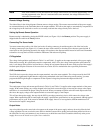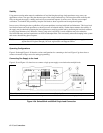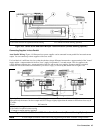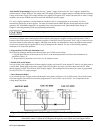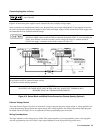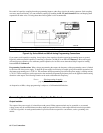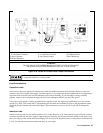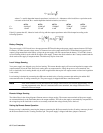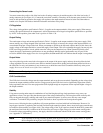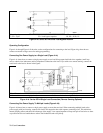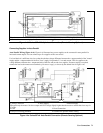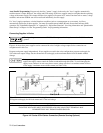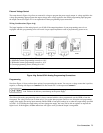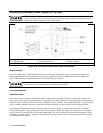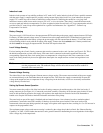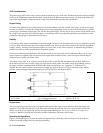
User Connections 69
Connecting the Sense Leads
You must connect the positive side of the load to the +S analog connector pin and the negative side of the load to the -S
analog connector pin (see Figure 4-1). Connect the sense leads carefully so that they do not become open-circuited. If sense
leads are left open during operation, the supply will regulate at the output terminals instead of at the load. Remember to
bundle or tie wrap the load leads to minimize inductance and reduce noise pickup.
CV Regulation
The voltage load regulation specification in Table 1-3a applies at the output terminals of the power supply. When remote
sensing, this specification must be compensated. Add an increment to the voltage load regulation specification as specified
by “∆mV” in the equation given under Load regulation in Table 1-3b.
Output Rating
The rated output voltage and current specification in Table 1-3a applies at the output terminals of the power supply. With
remote sensing, any voltage dropped in the load leads causes the supply to increase the voltage at the output terminals so it
can maintain the proper voltage at the load. When you attempt to operate at the full-rated output at the load, this forces the
supply voltage at the output terminals to exceed the supply's rated output. This will not damage the supply, but may trip the
OVP (overvoltage protection) circuit, which senses the voltage at the output bus bars. When operated beyond its rated
output, the supply's performance specifications are not guaranteed, although typical performance may be good. If the
excessive demand on the supply forces it to lose regulation, the Unr annunciator will indicate that the output is unregulated.
Output Noise
Any noise picked up on the sense leads also appears at the output of the power supply and may adversely affect the load
voltage regulation. Be sure to twist the sense leads to minimize external noise pickup and route them parallel and close to
the load leads. In noisy environments, it may be necessary to shield the sense leads. Ground the shield only at the power
supply. Do not use the shield as one of the sense conductors.
Note The signal ground binding post on the rear panel is a convenient place to ground the sense shield.
OVP Considerations
The OVP circuit senses the voltage near the output terminals and not at the sense terminals. Depending on the voltage drop
between the output terminals and the load, the voltage sensed by the OVP circuit can be significantly higher than actually
being regulated at the load. You must program the OVP trip high enough to compensate for the expected higher voltage at
the output terminals.
Stability
Using remote sensing under unusual combinations of load-lead lengths and large load capacitances may cause your
application to form a low-pass filter that becomes part of the voltage feedback loop. The extra phase shift created by this
filter can degrade the supply's stability and result in poor transient response. In severe cases, this may cause output
oscillations. To minimize this possibility, keep the load leads as short as possible and tie wrap them together.
In most cases, following the above guidelines will prevent problems associated with load lead inductance. However, if a
large bypass capacitor is required at the load and load-lead length cannot be reduced, then a sense-lead bypass network may
be needed to ensure stability (see Figure 4-4b). The voltage rating of the 33 µF capacitors should be about 50% greater than
the anticipated load-lead drop. Addition of the 20-Ω resistors will cause a slight voltage rise at the remote sensing points.
For utmost voltage programming accuracy, the supply should be recalibrated with the DVM at the remote sensing points
(see “Appendix A - Calibration”).
Note If you need help in solving a stability problem with any Series 667xA power supply contact an Agilent
Service Engineer through your local Agilent Sales and Support Offices.



